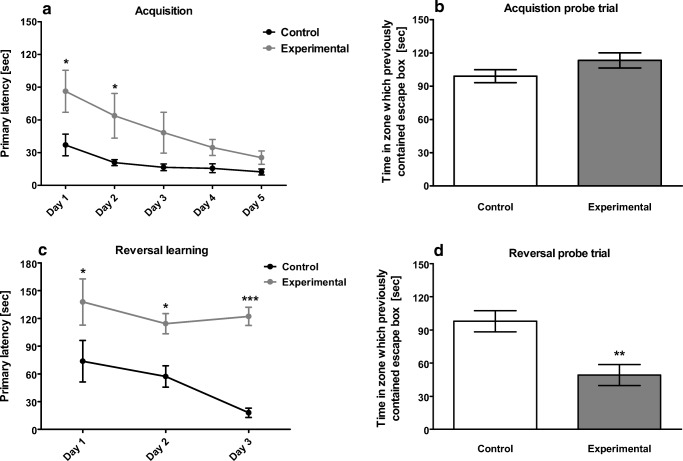Fig. 2.
An example of BM data. At first glance, one may assume that the study reveals spatial memory impairments in experimental group (a) alone, due to statistical differences in primary latency between groups in 1st and 2nd days of learning. In fact, both groups acquired the task, but the experimental group needed a longer time to do so (steeper slope). This effect was confirmed in the probe trial (b), conducted 24 h after the last training trial. Both groups spent similar amounts of time in the zone (one fourth of the maze) which previously contained the escape box. However, when the reversal learning trials were conducted, the animals in the experimental group did not re-learn the new position of the safe shelter (c). This was confirmed in the reversal learning probe trial, when the animals spent less time in the zone providing a new position of safe shelter, compared to the control group (d). In summary, the substance tested did not affect spatial memory acquisition, but impaired animal cognitive flexibility

